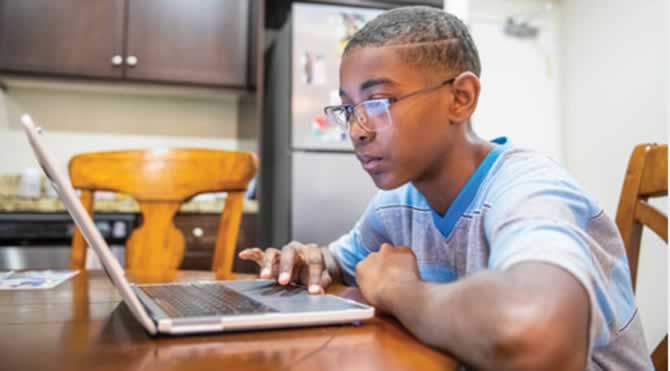A guide to the reopening of school
A guide to the reopening of school angenithaParents who are not comfortable with their children going back to school can apply to the Department of Basic Education (DBE) to have their children home schooled.
However, according to Basic Education Minister Angie Motshekga, in terms of the relevant section of the South African Schools Act, parents or guardians need to get home schooling approval from the education authorities.
“A parent who chooses not to send a learner to school must apply to the head of the provincial education department who, in the terms of the South African Schools Act, can exempt a learner entirely, partially or conditionally from compulsory school attendance, if such an exemption is in the best interest of the learner,” says Minister Motshekga.
After being closed since the middle of March following the coronavirus disease (COVID-19) outbreak in South Africa, schools have begun to reopen, with the department following a phased-in approach.
Schools were initially set to open on 1 June but that was postponed for a week because some schools were not ready.
The first group to go back were grades 12 and seven pupils, on condition that their school had the necessary personal protective equipment and other safety measures in place to safeguard both staff and learners, says Minister Motshekga.
She says the safety of pupils, teachers and support staff is the department’s number one concern. “Critical to the reopening of schools was and still remains absolute compliance with all health, safety and social distancing protocols pronounced by the Department of Health.
Any school or office that does not comply with these measures will remain closed until compliance is reached, says Minister Motshekga.
She urges parents not to send pupils who exhibit COVD-19 symptoms to school.
The Minister says water tanks have been delivered to schools without running water to enable hygiene protocols to be followed.
Reopening of school measures
The DBE printed directives in the Government Gazette pertaining to the reopening of schools and the measures needed to address, prevent and combat the spread of the virus in the basic education sector.Minister Motshekga says the gazette states that people who need to travel between provinces, metropolitan areas and districts to get to and from work on a daily basis will be issued with special travel permits. These will be issued by a head of department or a delegated official, she says.
“There will also be a certificate issued to learners who have to commute to and from school on a daily basis, which will be issued by a principal of a school or a delegated person. The issuing of the certificates must be done in compliance with the regulations.
A person transporting a learner to school must also be issued with a permit.”
She says the school timetable has been re-engineered to make up for the lost school days. “In order to recoup the teaching and learning time lost, the schooling system had to be re-engineered – resulting in an adjustment of the timetables and a review of the curriculum in terms of the National Education Policy Act.
The Act empowers the Minister to determine a national policy for the curriculum framework, core syllabuses and education programme.
“A curriculum workstream, consisting of curriculum experts from the department and from outside the department, is continuously managing this aspect of the re-engineering of the curriculum,” says Minister Motshekga.
The ban on all extramural events at schools, including sport, choral competitions and choral rehearsals, arts and other cultural festivals, remains in place.
Psychosocial support
Schools will be receiving psychosocial support services from the DBE, the Department of Health and the Department of Social Development to help learners, educators and officials who are experiencing social, mental, psychological and emotional difficulties from COVID-19.
The National School Nutrition Programme has also been adjusted so that it is aligned with the phased-in approach of schooling and the Curriculum Recovery Plan of the basic education sector. The DBE is supplying food handlers in schools with the required personal protective equipment, including gloves, aprons and cloth masks.